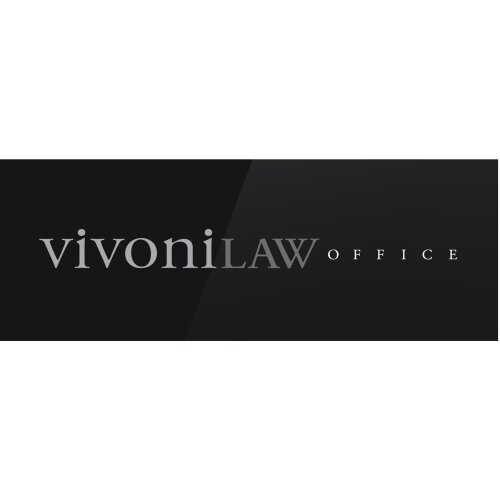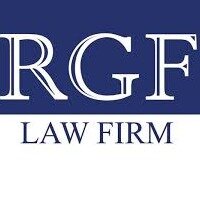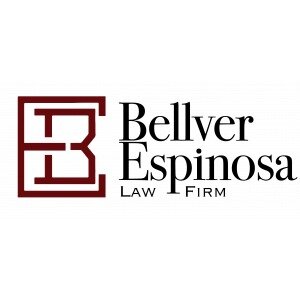Best Private Equity Lawyers in Puerto Rico
Share your needs with us, get contacted by law firms.
Free. Takes 2 min.
Or refine your search by selecting a city:
List of the best lawyers in Puerto Rico
About Private Equity Law in Puerto Rico
Private equity (PE) refers to investment funds, typically organized as limited partnerships, that buy and restructure companies not publicly traded on stock exchanges. In Puerto Rico, private equity activity has been steadily growing, driven by favorable tax incentives, strategic positioning, and an increasingly diverse business landscape. Whether you are an investor, business owner, or fund manager, understanding private equity law in Puerto Rico is essential for navigating the local market and seizing growth opportunities.
Puerto Rico operates under a civil law system, influenced by both U.S. federal laws and local statutes. Private equity transactions here share many similarities with mainland U.S. practices, but there are distinct local regulations and unique opportunities, such as tax incentives under Acts 20, 22, and 60, that are specific to the island. These factors create a legal environment where expert guidance is crucial for successful private equity deals.
Why You May Need a Lawyer
Legal counsel is invaluable in the complex arena of private equity. There are several common situations where consulting a lawyer is essential:
- Setting up or Investing in a Private Equity Fund: Lawyers help draft fund formation documents, ensure regulatory compliance, and advise on local tax and investment laws.
- Negotiating Deals: Lawyers negotiate terms, conduct due diligence, and evaluate risk to protect your interests during acquisitions or exits.
- Tax Strategy: The unique tax laws in Puerto Rico can benefit PE investors, but only when properly navigated with expert legal assistance.
- Exit Strategies: Whether selling a stake or closing a fund, a lawyer ensures smooth and compliant transitions.
- Dispute Resolution: In case of conflicts between partners, investors, or portfolio companies, lawyers provide representation in negotiations, mediations, or court actions.
Getting legal advice early helps prevent costly mistakes and maximizes the value of your investments.
Local Laws Overview
Several key aspects of Puerto Rican law affect private equity activities:
- Tax Incentives: Programs like Acts 20, 22, and 60 offer substantial tax benefits for eligible investors and managers when certain requirements are met.
- Corporate Law: Puerto Rico’s corporate statutes determine how entities can be structured, managed, and regulated. Limited liability companies (LLCs) and partnerships are commonly used vehicles.
- Securities Law: Offers and sales of securities are governed by both federal law (such as SEC regulations) and local Puerto Rican laws, including registration and disclosure obligations.
- Employment Regulations: Labor laws impact due diligence and valuation of target companies.
- Real Estate and Environmental Law: Many private equity deals involve real estate, requiring compliance with ownership, use, and environmental regulations.
- Bankruptcy and Insolvency: Puerto Rico’s local code interacts with federal bankruptcy rules, influencing deal structures and risk assessments.
Understanding these legal frameworks is key to ensuring profitable and compliant private equity investments in Puerto Rico.
Frequently Asked Questions
What are the main benefits of investing in private equity in Puerto Rico?
Puerto Rico offers investor-friendly tax incentives, a strategic location, access to U.S. markets, and an evolving local economy, making it a compelling choice for private equity investments.
What legal structure is best for setting up a private equity fund in Puerto Rico?
Most private equity funds use limited partnerships or limited liability companies for flexibility, tax planning, and limited liability protection. Local and federal requirements must both be satisfied.
Do Puerto Rico’s tax incentives apply to all private equity investors?
Not automatically. Investors and fund managers must apply for and qualify under the specific terms of the tax incentive acts, such as Act 60, and maintain compliance with ongoing requirements.
Is U.S. federal securities law applicable in Puerto Rico?
Yes, Puerto Rico is subject to U.S. federal securities laws, including SEC rules. However, certain local exemptions and regulations may also apply.
How important is due diligence before a private equity investment?
Critical. Due diligence helps identify legal, financial, and operational risks in a target company, ensuring well-informed decisions and protecting against future liabilities.
Can foreign investors participate in private equity funds in Puerto Rico?
Yes, foreign investors can participate, but they must adhere to both local and U.S. federal legal requirements, including tax and securities regulations.
What are typical legal fees when working with a private equity lawyer?
Fees vary by complexity and firm, usually charged hourly or as a flat fee for specific services. Discuss fee structures with your lawyer before engaging their services.
Are there any local restrictions on private equity ownership of businesses in Puerto Rico?
Generally, there are no broad restrictions, but specific industries such as banking, insurance, or utilities may have regulatory requirements or limitations.
How does Puerto Rico’s bankruptcy regime affect private equity investments?
Puerto Rican and U.S. federal bankruptcy laws can influence deal risk and recovery strategies. Investors should seek legal guidance to understand exposure and options in case of insolvency.
How long does it take to set up a private equity fund in Puerto Rico?
On average, it can take from a few weeks to several months, depending on the complexity of the fund structure, regulatory approvals, and organizational tasks.
Additional Resources
The following organizations and resources can provide further guidance and support for private equity legal matters in Puerto Rico:
- Puerto Rico Department of Economic Development and Commerce (DDEC): Offers information on investment incentives and regulatory requirements.
- Puerto Rico Office of the Commissioner of Financial Institutions (OCIF): Oversees financial services and securities regulation on the island.
- Puerto Rico Chamber of Commerce: Connects investors with local business opportunities and professional resources.
- Puerto Rico Bar Association: Maintains a directory of licensed local attorneys, including business law and private equity specialists.
- Securities and Exchange Commission (SEC): Federal regulator with jurisdiction over securities offerings involving Puerto Rican entities.
Next Steps
If you are considering private equity investments or setting up a fund in Puerto Rico, consult with a local lawyer who specializes in this field. Gather your investment goals, background information, and financial details to streamline discussions. Discuss your objectives openly and ask your lawyer about their experience with private equity and relevant Puerto Rican laws. Always review engagement terms and fee structures before moving forward.
Early legal advice can help you avoid costly missteps, leverage unique local incentives, and maximize the value of your investments. A private equity lawyer will guide you through compliance, negotiate contracts, and secure your interests every step of the way.
Lawzana helps you find the best lawyers and law firms in Puerto Rico through a curated and pre-screened list of qualified legal professionals. Our platform offers rankings and detailed profiles of attorneys and law firms, allowing you to compare based on practice areas, including Private Equity, experience, and client feedback.
Each profile includes a description of the firm's areas of practice, client reviews, team members and partners, year of establishment, spoken languages, office locations, contact information, social media presence, and any published articles or resources. Most firms on our platform speak English and are experienced in both local and international legal matters.
Get a quote from top-rated law firms in Puerto Rico — quickly, securely, and without unnecessary hassle.
Disclaimer:
The information provided on this page is for general informational purposes only and does not constitute legal advice. While we strive to ensure the accuracy and relevance of the content, legal information may change over time, and interpretations of the law can vary. You should always consult with a qualified legal professional for advice specific to your situation.
We disclaim all liability for actions taken or not taken based on the content of this page. If you believe any information is incorrect or outdated, please contact us, and we will review and update it where appropriate.
Browse private equity law firms by city in Puerto Rico
Refine your search by selecting a city.













